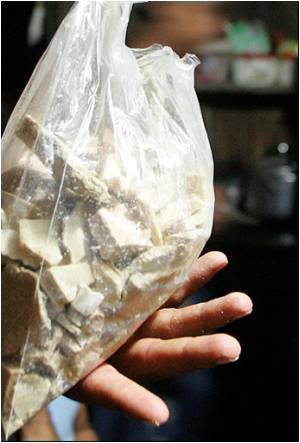In a study it was found that drug-related images immediately captured the attention among both active and abstinent cocaine users.

"Though a dampened response to drug images might appear helpful in those struggling with addiction, the impaired response to other emotional stimuli among recent cocaine users could indicate a general difficulty in sustaining motivated attention," said Rita Goldstein, director of Brookhaven's Neuropsychoimaging Group.
"Impairments in sustaining non-drug-related, goal-oriented motivation could predispose addicted individuals to drug use as a way to compensate for their reduced response to other reinforcement - including the rewards that would come from not taking drugs," she said.
The findings appear in a paper published online in the European Journal of Neuroscience.
Source-ANI











